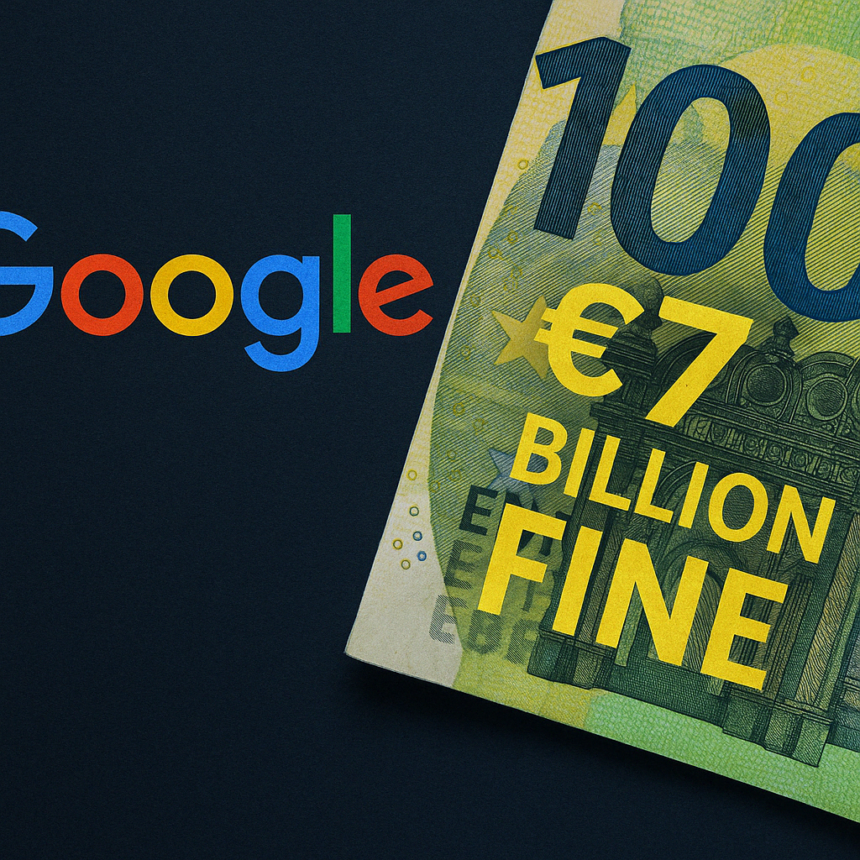Google, the giant search engine and digital advertising company, is under intense scrutiny as it faces a €7 billion fine due to alleged anticompetitive practices in Europe. This new legal battle comes as European regulators accuse the company of overcharging advertisers through its dominance in the search engine market. The lawsuit and investigation have the potential to reshape digital advertising by forcing changes in how Google operates and influences global advertising markets.
What’s Happening & Why This Matters
At the center of this legal storm is Google’s dominance in the online search and advertising sectors. The European Commission has accused Google of unfairly leveraging its dominance by manipulating search results to promote its advertising services while sidelining competitors. Using tactics such as prioritizing its services in search rankings and paying companies like Apple to make Google the default search engine in apps like Safari, Google has reportedly manipulated the digital advertising ecosystem.
Advertisers, especially small businesses, have expressed frustration over Google’s influence in driving up the cost of online ads. The European regulators claim that the company has been overcharging advertisers by creating an ecosystem that favors its products and services unfairly. This monopolistic practice reportedly harms competitors by limiting their exposure in search results, preventing them from gaining equal footing in the market.
Google’s pre-installing Google Search on Android devices and paying other companies for default search engine access are central to the legal charges. The class action lawsuit in the UK now seeks £5 billion in damages for businesses negatively affected by these monopolistic tactics. The lawsuit claims that Google’s practices led to inflated advertising costs, limiting opportunities for businesses to advertise effectively online.
Many critics argue that Google’s dominance in the search engine market and its control over digital advertising harm consumers and businesses. These practices stifle innovation and reduce competition, effectively creating an ecosystem where businesses have no choice but to rely on Google for advertising services, driving up prices in the process.
The Broader Impact of Google’s Anticompetitive Practices
Google’s control over digital advertising is not just a problem for advertisers but also raises questions about market competition and consumer choice. As one of the most dominant players in the online advertising world, Google has the power to set market trends, determine pricing, and restrict competitors. This is causing concern about the level of competition and innovation in the digital advertising space.
The class action lawsuit is notable because it advocates for fairer practices within the digital advertising market. If successful, it could force Google to alter its business practices and provide equal opportunities for competitors. The case indicates the risks of monopolistic behavior by big tech companies and brings attention to the need for better regulation of digital markets. Furthermore, the lawsuit’s outcome could set a legal precedent for how digital platforms like Google should be regulated and held accountable.
In addition to the UK lawsuit, Google is facing further antitrust investigations from other regulatory bodies worldwide, including the European Union and the United States. This heightened scrutiny will likely force Google to reconsider its business model and advertising strategies. The case also signals that regulators worldwide are becoming more focused on holding big tech companies accountable for their market power and influence.
TF Summary: What’s Next
As the case progresses, Google is expected to mount a robust defense against the claims of anticompetitive behavior. The company maintains that its practices do not harm competition and that its products benefit consumers and advertisers. However, the mounting legal challenges and increasing regulatory scrutiny suggest that Google must make substantial changes to avoid penalties and ensure compliance with antitrust laws.
Suppose the case succeeds in holding Google accountable for its market practices. In that case, the company may be forced to overhaul its approach to digital advertising, potentially leading to lower costs for advertisers and more competition in the search engine market. The lawsuit’s outcome will likely have consequences for Google’s business model and could set the tone for future regulation of the digital advertising market. In the coming months, Google will be closely watched as it navigates these legal challenges and attempts to protect its dominant position in the digital world.
— Text-to-Speech (TTS) provided by gspeech


